Learning Mandarin at the MTC in Taipei, part 1: answers to a bunch of random questions you may or may not have
- By Robyn Lee
- Sep 17, 2017
- Comments
Note: I currently live in Norway. I lived in Taipei from August 2014 to June 2015 and am veeerrrryy sloooowly writing posts about my time there.
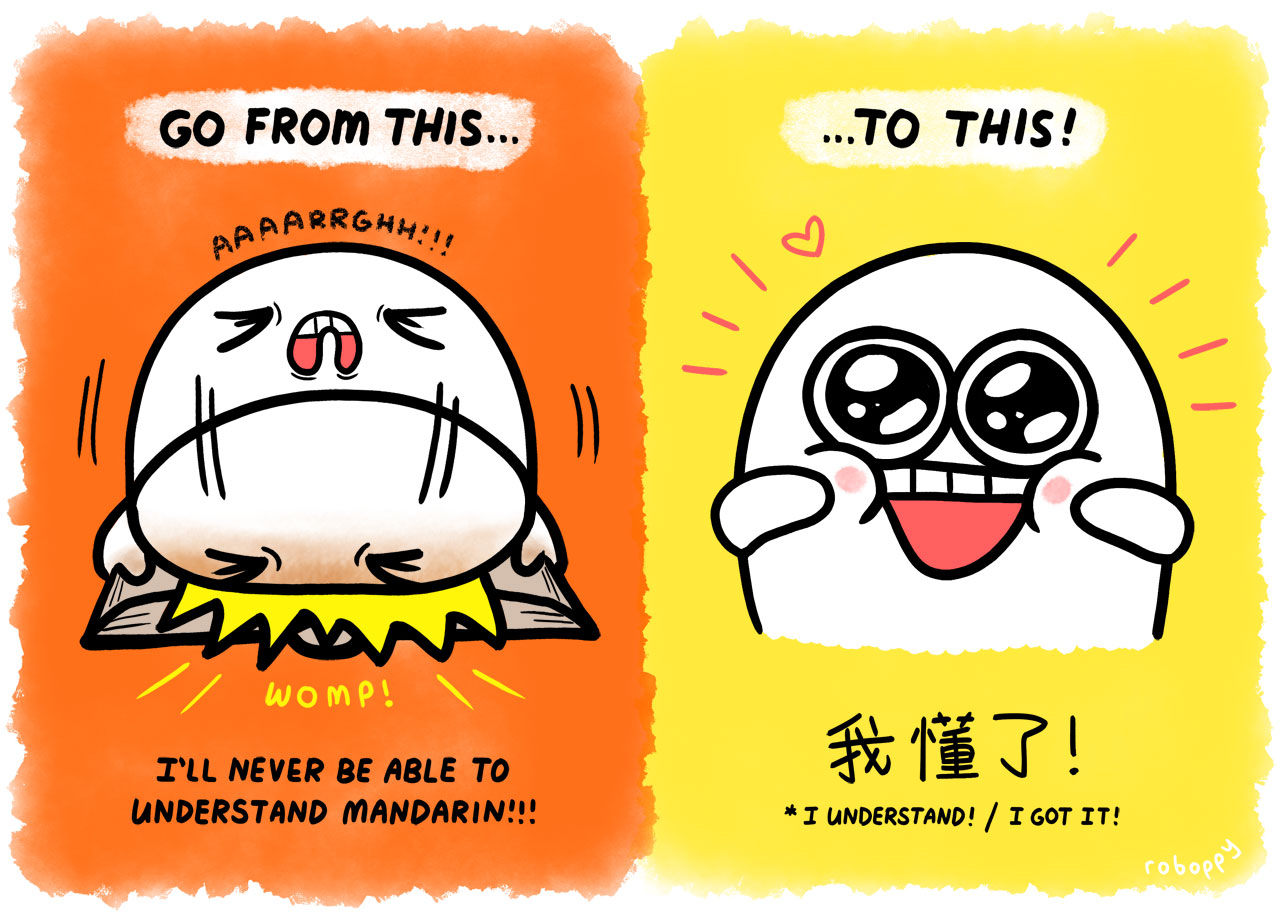
- This blob dude could be you!
Do you have Chinese ancestry? Is your knowledge of Mandarin and its dialects as rich as Dickensian gruel? Do you wake up every morning trapped in a prison of shame fortified by your inability to understand the language of your forebears? Do you feel like a complete failure for learning nothing from your Mandarin-speaking parents and relatives, barely worthy of the first half of your hyphenated ethnic-national identity?
If so, then 1) there, there, simmer down (I suggest poking this therapeutic jello mold repeatedly), and 2) you're not hopeless! As a previously hopeless Mandarin learner, I'm here to overconfidently tell you that it's never too late to learn Mandarin and douse those flames of shame with [cue magical twinkly sound] knowledge!
And if the previous paragraph's characteristics do not apply to you, that's cool—you too can learn Mandarin. The lifelong struggle over the fulfillment of one's Chinese identity is not required.
After 29 years of knowing less Mandarin than a fish in a Chinese restaurant's seafood tank, I moved to my parents' birthplace of Taiwan in the summer of 2014 to attend the Mandarin Training Center (aka the MTC, 師大國語教學中心), a non-degree program at Taipei's National Taiwan Normal University (aka Shida, 師大). I saw it as my last chance before getting married to pick up some Mandarin for feeling less like a half-assed person of Chinese descent self-improvement and to learn more about the culture my parents grew up with. Nine months of classes may not have left me anywhere near fluent, but it did crack through my long-held belief that I was immune to learning Mandarin. And the experience showed me that, hell, maybe—just maybe—I could learn other skills if I put my mind to it and didn't waste my life away dicking around on the internet but I have yet to test that theory.
I'm writing this two-part series of posts to document my nine-month experience at the MTC as a monolingual Chinese-American starting from the beginner level. If you're a prospective student who isn't a beginner, parts of my experience won't apply to you. If you're looking for knowledgeable advice from someone who's tried different kinds of Mandarin courses (say, in the US or China) or someone who has a lot of experience learning second languages, get ready to find the opposite of that. But despite my limited experience, I hope my posts can be of some use to prospective Mandarin learners.
Some of the questions in the following FAQ are real questions that people have asked me about my time at the MTC. Some of the questions are ones I made up for the purpose of cramming more info into this post. Which is which? NO ONE SHALL EVER KNOW nor care. What I won't do is go into detail about administrative aspects of the school, like how to apply, descriptions of different courses and facilities, how to do visa-related stuff, or other information you can find on the MTC's website.
Other former MTC students have written detailed accounts of their experiences as well. Here are a few that I think are worth pointing out. They contain a wealth of information that I won't be touching upon in my post:
- Mandarin Training Center at NTNU for Dummies (lostpig.blogspot.com): It does what it says on the tin. This blog is from 2009 but much of the information applied to my experience in 2014-2015 and may still apply today.
- Mandarin Training Center, National Taiwan Normal University (chinese-forums.com): This write-up from 2011 describes different levels at the school, different courses, and a general overview of life in Taipei.
- Review of my Chinese course and some simple hacks (memyselfandmandarin.wordpress.com): Out of all the reviews I read about the MTC, this blogger's experience best mirrored mine. We even had one of the same teachers!
If you have more questions about the MTC that I haven't covered in this post, ask me in the comments below or email me (roboppy@gmail.com) and I'll try to answer here. For more information about class structure and teaching styles at the MTC, head to part two.
Here's a list of the questions I'll be covering:
- Why did you choose the MTC?
- Should I choose the regular class or intensive class?
- How much homework do you get in intensive? Will the course load mash my brain into an oatmeal-like consistency?
- Is learning traditional characters as impossible as it seems?
- Should I bother learning zhuyin in addition to pinyin?
- What was your favorite thing about the MTC?
- What was the worst thing about the MTC?
- How long should I enroll for? What level will I be at after three/six/nine months?
- I really want to go to the MTC, but I'm broke. Are there scholarships available?
- I'm not required to take the TOCFL for school or work, but should I take it anyway?
- Do you get off from school for Christmas?
- What holidays DO you get off?
Why did you choose the MTC?
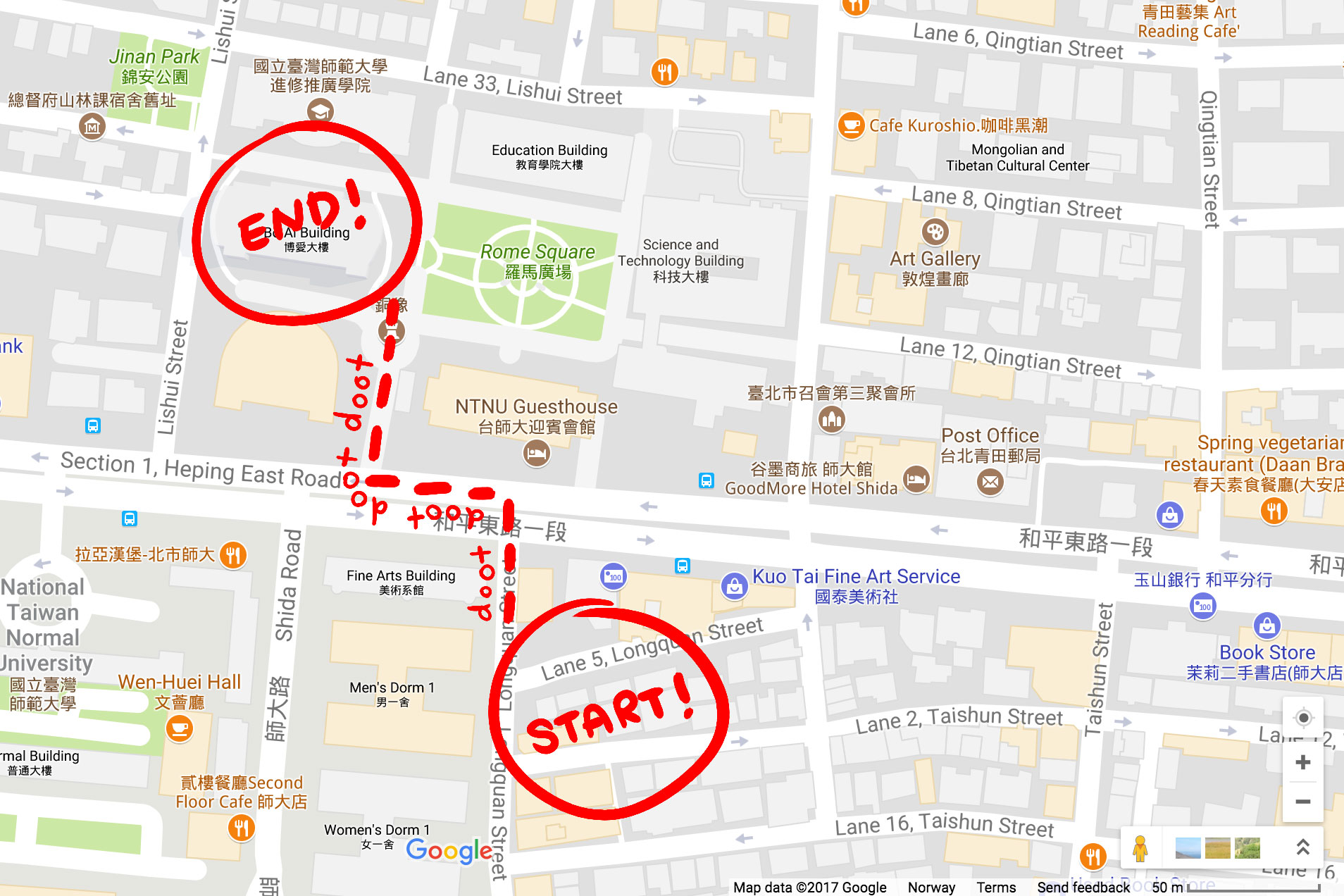
- My route to school.
I'm not sure I should admit this, but...uh...I chose the MTC largely because it was really close to my dad's apartment where I was living. I wasn't purely driven by laziness—other deciding factors included the school's decades of Mandarin education for foreigners and its mostly good reputation—but there are few perks more enticing than being able to roll out of bed 15 minutes before the start of class and still get to class on time, even after walking up seven or more flights of stairs. (I'm not sure if the stairs were actually faster than taking the elevator, but the building's elevators were often so slow and crowded that the stairs felt faster.)
Should I choose the regular class or intensive class?
First off, for those who don't know the difference between regular and intensive, check out this post from lostpig.blogspot.com that gives a rundown of the two types of classes. The main difference is that intensive classes are 15 hours a week, while regular classes are 10 hours a week plus five hours of MTC-approved supplementary classes and studying. As the name implies, the intensive classes get through the material more quickly than the regular classes. Intensive classes complete one textbook each term at a rate of one chapter every three or four days. I'm not sure how much the regular classes cover, but I'd guess it's more like one chapter a week.
I wanted to take intensive classes as soon as I found out they were an option. Knowing that I'd only be at the MTC for nine months as a full-time student without any other responsibilities, I figured the intensive classes would help me squeeze the most out of my time at the MTC. If you're a beginner with limited time in Taiwan, I'd recommend choosing intensive.
Having said that, intensive is not for everyone, especially if you have an inflexible schedule due to work, other classes, or other responsibilities. The regular class may be better suited to your learning style, besides that it would allow you to have a more leisurely lifestyle while living in Taiwan (although I'd say I had a pretty leisurely life with the intensive classes). You may have to try both types of classes to see which one you prefer. I had friends who switched from intensive to regular or vice versa after finding that their first pick wasn't suited for them.
How much homework do you get in intensive? Will the course load mash my brain into an oatmeal-like consistency?
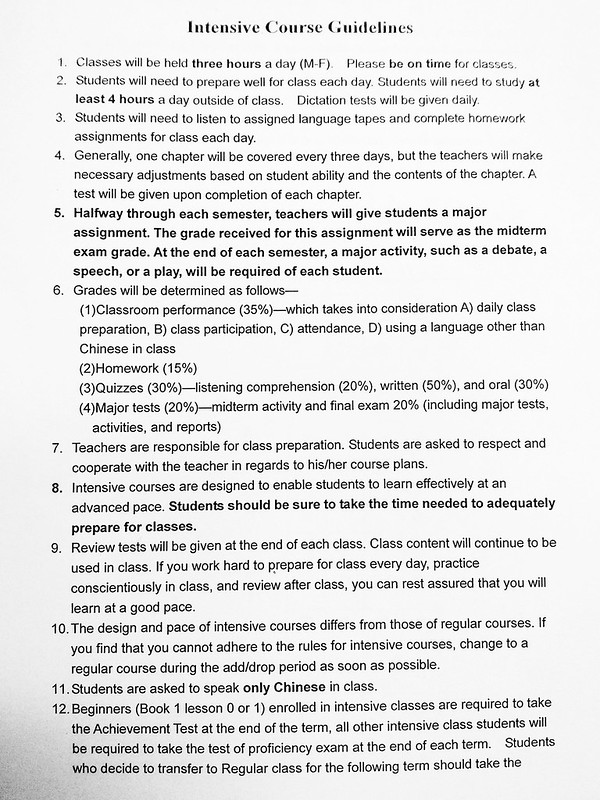
- These guidelines were given to us on the first day of class. Each student had to sign their paper and hand it back in.
According to the guidelines I was given when I started at the MTC, students in the intensive class need to study at least four hours a day to keep up with the schedule of getting through one textbook each term. This is pretty accurate from my experience, although for me four hours was the high end. I rarely studied more than four hours. Sometimes I'd study closer to three hours. And there were a handful of occasions where I had unknowingly entered a wormhole into a parallel universe where language acquisition was way easier, meaning I didn't receive any homework nor have a test the next day to prepare for. On those days, I usually studied somewhere between zero and zero hours. Of course, not having homework nor tests to prepare for doesn't translate to "no studying required", but to me (and most of my classmates, probably), no homework translated to "AW YEAAAH LET'S DO ABOSLUTELY ANYTHING THAT DOESN'T INVOLVE STUDYING."
As for what those four-ish hours consisted of, it was a mix of memorizing new vocabulary, practicing writing each new character until the cartilage in my right hand rubbed down into a fine dust, doing exercises in the workbook, reviewing the latest lesson in the textbook to prepare for a quiz or test (which teachers gave almost every day—I talk more about this in part two), and doing other homework the teacher may have assigned. The time is easy to fill, but it passes with the speed and comfort of a large kidney stone—at least in the beginning. That's why I developed a crippling dependence on lattes and cute cafes to keep me lucid. Otherwise I probably would've drooled myself to sleep at least twice a day while doing my homework and studying.
Is learning traditional characters as impossible as it seems?

- Animated stroke order of the character biáng, used in the name of biangbiang noodles. It's known for being one of the most complex Chinese characters to write. But if this ~57-stroke character intimidates you, don't worry—you'll probably never have to write it, unless you're a student in Sichuan facing punishment for tardiness. According to Wikipedia, this character is not found in modern dictionaries and it has yet to be encoded into unicode. But it looks cool, so I'm using it here. And even though it's complex if you judge it by the sheer number of strokes, it's not actually difficult to write (well, if you have enough space to write it). It's stuffed with radicals that you'll have memorized by the end of your first term. [Image: Kc kennylau (GFDL or CC BY 3.0), via Wikimedia Commons.]
Nope! (But you knew that already. Otherwise traditional characters would've died out a long time ago.) I'm not saying it's easy, because it's not, but the perception of its insane difficulty probably makes some people think it's not even worth trying to learn, myself being one of these people before I tried to learn it.
Whether it's worth learning traditional characters is up to you. Before I started at the MTC, I wasn't that interested in being able to read and write characters, traditional or simplified, but the more time I put into learning characters (...a lot of time), the more I grew to appreciate them. The program at the MTC emphasized reading and writing, and I'm grateful for that.
If you're intimidated by characters, let me assure you that after you get over the hurdle of internally wailing "WHY, CHARACTERS, WAAAAIII" with every seemingly excessive, soul-depleting stroke (my wailing period lasted at least one term), learning characters gets easier as time goes on. Besides that muscle memory will eventually kick in, allowing you to semi-automatically write common characters that months before looked like webs of nonsensical scratches, you'll more quickly see links between characters and their meanings as you build your knowledge of radicals.
For Level 1 (and maybe Level 2), your textbook will come with a character workbook that gives you stroke orders and space to practice writing in, but from my experience the MTC doesn't teach you much in the ways of how to learn characters. You'll be assigned which characters to learn, but you need to figure out what works best for you in terms of actually memorizing them. There are a bluhjillion tips online for how to memorize characters.
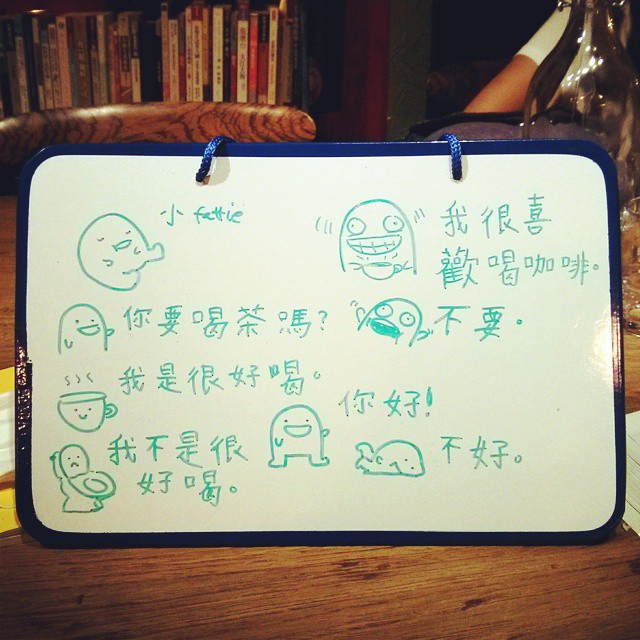
- Some whiteboard doodles a few weeks into class. Please don't judge my handwriting/grammar too harshly. ;_;
My method was pretty simple. I practiced writing each character over and over and over again on a small whiteboard, and I tested myself using flashcards in Pleco (the best Chinese dictionary app, as far as I know) until I felt that I had memorized the characters well enough for the next day's character quiz. This may have taken me hours a night in the beginning. Over time, I used the meanings of radicals more and more to memorize characters, and when the radicals alone didn't help me, making up dumb stories about a character usually would. I'm not saying this is the best way to learn characters, but it's one way that worked for me.
You should also consider the Pleco add-on Outlier Chinese Dictionary, a dictionary that better explains the components of common characters than Pleco's other dictionaries. I didn't get to use this dictionary during school because it came out after I left the MTC, but I bought it as soon as I heard about it.
Should I bother learning zhuyin in addition to pinyin?
- I remember watching a bopomofo tutorial video like this as a kid. The memories still haunt me. [Video: sizuka116 on YouTube]
For the purpose of learning at the MTC, you don't need zhuyin fuhao/bopomofo (注音符號), the phonetic symbols used in Taiwan to represent Mandarin pronunciation. The MTC's textbooks featured pinyin and only supplemented the pinyin with zhuyin for new vocabulary. (And after the Level 1 book, the textbooks don't use much pinyin.) My Level 1 teacher gave us a crash course in zhuyin on our first day of class to help introduce Mandarin pronunciation, but after that first day we rarely used zhuyin again.
Personally though, I wanted to get familiar with zhuyin because 1) I think it looks cute (an important factor to consider in any life decision) 2) most Taiwanese people only know zhuyin and not pinyin, and 3) before I got used to pinyin, I thought zhuyin would help me figure out the pronunciations of characters. I found that using pinyin in conjunction with zhuyin in the beginning improved my pronunciation. Additionally, trying to learn zhuyin and pinyin at the same time helped me learn both more quickly than if I had tried to learn each one on its own. This may not work for everyone, but if you're having trouble with pinyin, maybe learning zhuyin will help.

- Zhuyin keyboard on my phone, plus a snippet of my very important serious chat with Charlotte.
Having said that, today I am pretty bad at zhuyin. I quickly got used to reading pinyin, after which I decreased my zhuyin-learning efforts. The extent of my zhuyin practice these days is using a zhuyin keyboard on my phone to type Mandarin (I recommend Swiftkey), even though I tap the keyboard at the speed of a tranquilized slug. I use pinyin on my computer because I'm not familiar with the zhuyin keyboard and typing pinyin is roughly a billion times faster.
What was your favorite thing about the MTC?
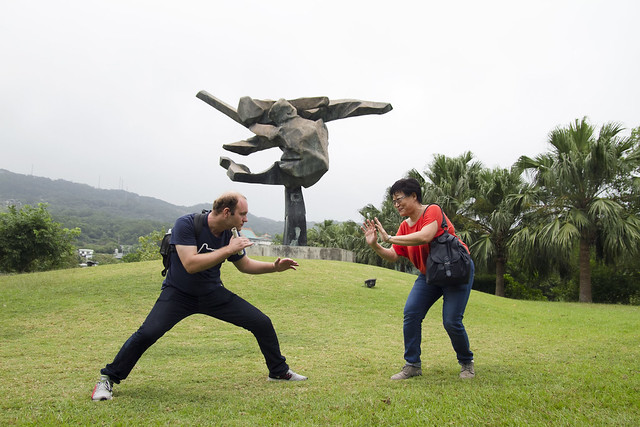
- My schoolmate Matt and our teacher Guan Laoshi in the middle of a battle during our fieldtrip to Juming Museum.
My teachers and classmates! One of the biggest complaints I read about the MTC before I applied was that the teacher quality was inconsistent, ranging from "satisfactory babysitter" to "please adopt me because I love you more than my mother". Luckily, I didn't experience inconsistent teachers, just different teaching styles (which I explain in part two). I liked my three teachers in different ways and I never felt any desire to switch classes. However, some of my friends were less lucky and switched to different classes as soon as they could find an open spot in another class. So a subpar teacher may lie in your future, but it's more likely you'll get a good one.
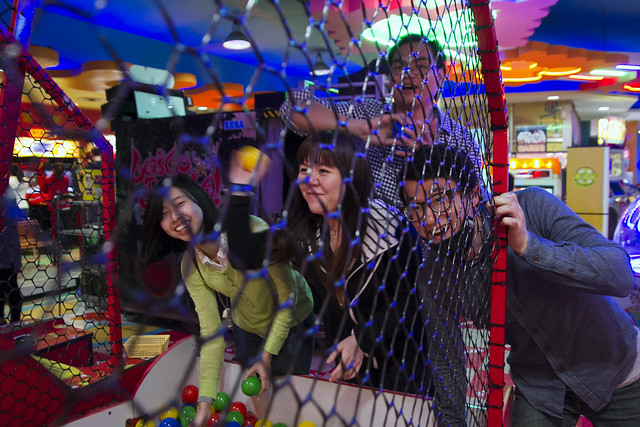
- Some of my classmates and other MTC friends at an arcade during our trip to Tainan.
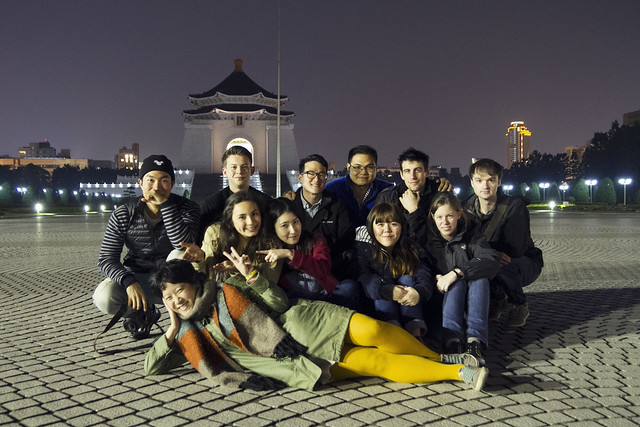
- Lying down in front of CKS Memorial with classmates and other MTC friends.

- Subway surfing with Charlotte, Mayu, and Xiangtai on the way home after dinner.
After teachers, the next most important part of my learning experience was my classmates. It's better to have a great teacher than to have great classmates, but having classmates you can't talk to or feel any desire to hang out with isn't going to boost your morale. As someone who went through most of her secondary and tertiary education with few friends in the same school, I didn't think "cool classmates" would be that important to me until I experienced what it's like to have them. You're going to be stuck in a small room with five to seven other people for three hours, five days a week. If you don't feel vibes of compatibility from day one, that could be a worthwhile reason to switch classes.

- The "thank you" card I drew for my class's Level 1 teacher, with every classmate in blob form carrying his/her flag.
Most of my classmates were friendly, hard-working, generous, and surely more amazing than I'd ever get to know in the short time we had together. They also made for the most diverse classes I had ever been in, hailing from Guatemala, India, Germany, Honduras, South Korea, Japan, Thailand, Indonesia, and Mexico. Over my three terms, I only had two classmates from the US. I count diversity as a huge plus to my MTC experience.
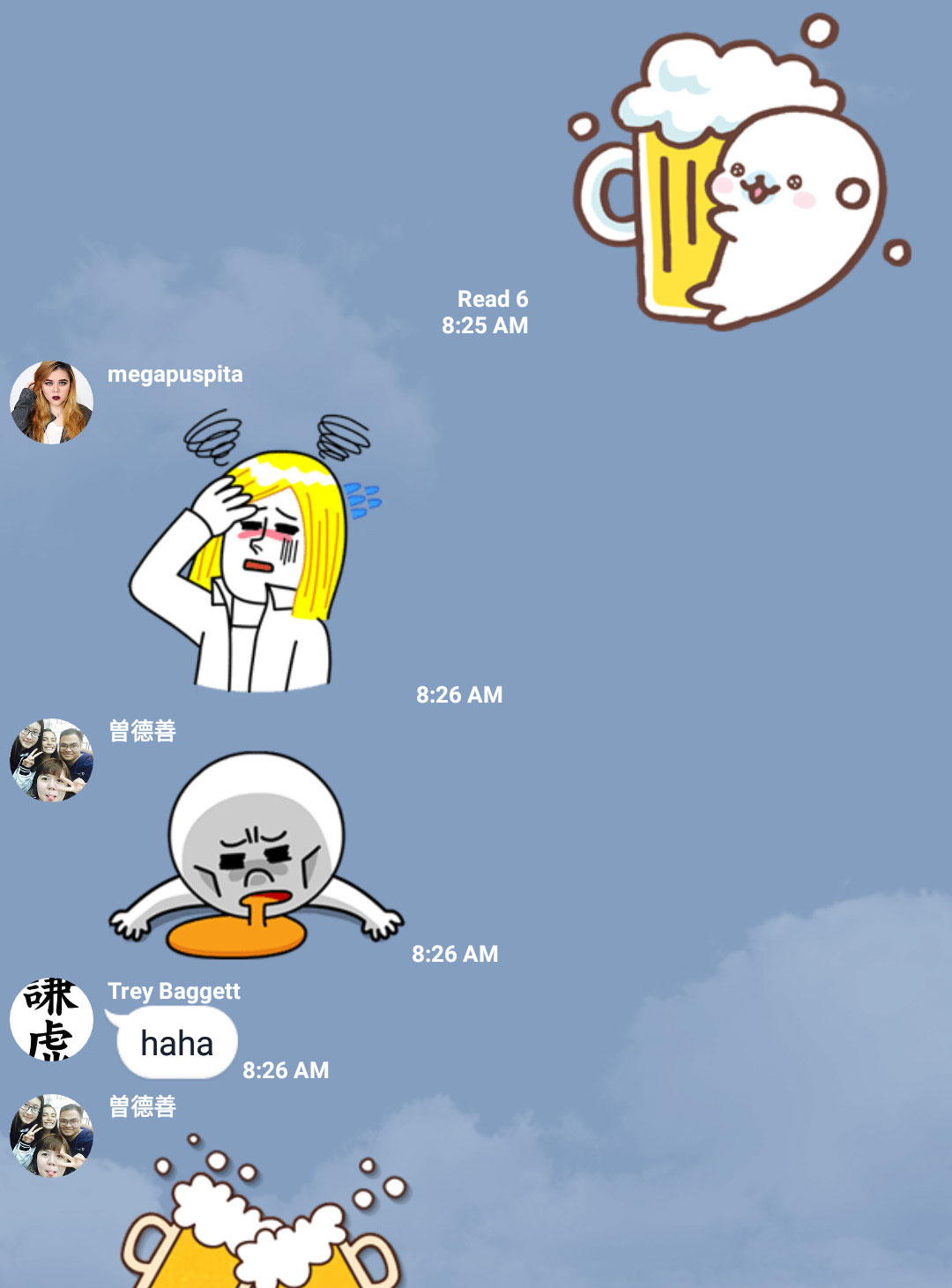
- LINE chat room with my Term 2 classmates, plus out-of-context stickers.
An easy way to connect with your classmates is to create a Facebook group for your class and/or a LINE chat group early in the term. (This is assuming that LINE is still the king of chat apps in Taiwan like it was in 2015.) If you're shy like me and you hate taking charge of anything social, too bad—you might have to take charge if you don't want to fetal-position your way into a dark corner of loneliness. Sure, not every classmate is going to want to do this (and maybe that classmate is you), but this tactic worked pretty well in my first two terms as far as helping me keep in touch with my classmates in case we had questions about homework or wanted to get together to eat or go sightseeing.
(If right now you're thinking, "Robyn, I've already gone through puberty and I know how socializing works," I'm one of the clueless ones who doesn't have the best track record when it comes to making friends in real life. For those of you who are in the same boat and prone to crashing such a boat, my tips are for you.)
What was the worst thing about the MTC?
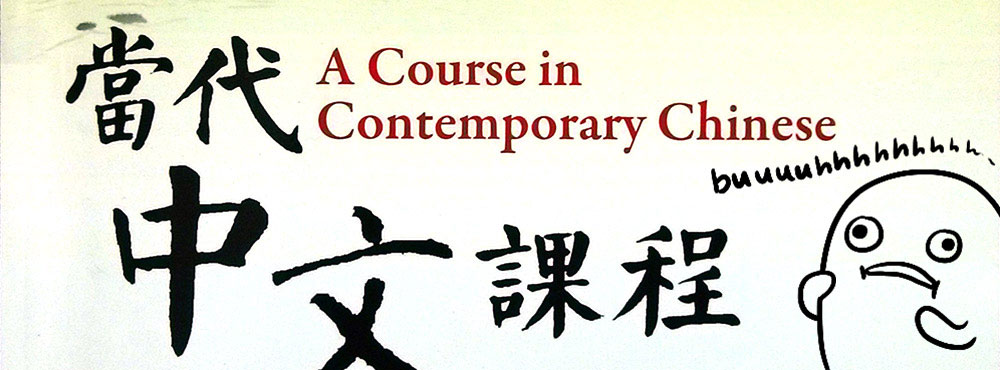
- I used this picture as the header for my class's Facebook group. I think we all felt pretty buhhhh about the book.
I wasn't a fan of the MTC's textbook series, A Course in Contemporary Chinese. I happened to enroll around the same time as when the school switched to trial versions of this new, updated series of textbooks. On the plus side, I got a book with more up-to-date information than the previously used book (I assume—I hadn't seen the previous book). On the downside, my classmates are I were guinea pigs for their new series of books that was still in the embryonic stage, with features such as bare-bones formatting, all the colors of the black and white rainbow, illustrations that hinted at an anemic art budget, a smattering of spelling errors, and explanations of grammar that increasingly confused more than explained. (On retrospect, I should've read this Chinese Grammar Wiki instead of trying to decipher the book's explanations.) The further I got into Book 1, the more it appeared to be slowly succumbing to a stroke. Books 2 and 3 didn't fare much better.
Having given that less than glowing review, I did like most of the material the books covered and the way the levels progressed. It's just that getting the trial version of each textbook instead of the final polished version diminished the learning experience a bit. Most teachers didn't seem to be fans of the book either.
But my complains are irrelevant now. Anyone starting at the MTC today would be getting the new version of the textbook series. So assuming the latest version doesn't suck, new students shouldn't have a problem with the textbooks. If the books are still sub-par, I'd assume they're at least better than what I used. For those who are curious, you can view sample pages of the textbooks at books.com.tw: Book 1, Book 2, Book 3, Book 4.
Another part of the course that was lacking was getting enough practice speaking (although this has been a problem in pretty much every secondary language class I've ever taken). If you want to get more speaking practice, you need to find local people to talk to—Taiwanese friends, language exchange partners, the old grandpa dude who lives down the street, etc. I didn't try hard enough to practice Mandarin with native speakers when I lived in Taiwan, and that's my fault.
If you want a language exchange partner but don't know where to begin, check out the bulletin board on the 7th floor in the MTC. It'll probably be covered in flyers from people requesting partners. Personally, I found some of my partners through totally unexpected ways—one through Instagram, another through my hairdresser, another through one of my dad's English students. There's no shortage of Taiwanese people who want to practice English or other languages.
Taking supplementary culture classes at the MTC [PDF] might also give you more opportunities to practice speaking and listening in a more relaxed setting depending on what class you choose. I can tell you from experience that the Chinese brush painting class is the completely wrong class to choose for such a purpose (it was, perhaps, the quietest class I had ever taken). However, I heard good things about the cooking class in terms of getting delicious foodstuffs (I got to eat my friend's leftovers, score!), learning cooking vocabulary, and having fun.
One last little thing I'm going to mention here because I don't know where else to put it is that Chinese uses an extra type of comma called the enumeration comma. It took me way too long to figure out that the enumeration comma is used differently from a regular comma and is not, as I had called it for months, "a weird-ass comma".
How long should I enroll for? What level will I be at after three/six/nine months?
From my experience, if you're a beginner and you want to set the groundwork for learning Mandarin, I'd recommend you take classes for at least six months (two terms), but ideally more. I took classes for nine months (three terms), but I wish I had had the time to take classes for a year. Of course, if you only have the time or funds to attend for three months (one term), that's better than nothing—it just won't get you that far. Although some people might be able to crush Mandarin in three months, I was certainly not driven enough to do that.
This PDF from the MTC's school bulletin breaks down the MTC's terms and what learning objectives you'll fulfill each term if you're starting as a beginner. If I use CEFR levels as a guide and apply the pace of intensive classes, you'll get through A1 after three months, A2 after sixth months, and part of B1 after nine months, learning about 500 characters each term. This means, in theory, you'll learn about 1500 characters after nine months. In reality, you'll forget a good deal of them if you don't continue your studies, just like meeeeeugh.
I was satisfied with my reading and writing abilities after nine months of classes, less satisfied with my listening and speaking abilities. As I mentioned in my previous section, you need to find outside sources to practice speaking in real-life situations. I'm not saying my listening and speaking abilities were complete trash, but they should've been better. This was evident when I went to the post office to buy a bunch of stamps shortly before I moved back to the US. I was more confident than usual, thinking, "I PREPARED FOR THIS. I DID SCHOOL. I CAN DO WORDS." Then I tried words. They mostly failed. The clerk and I resorted to writing numbers on post-its and using hand gestures to figure out what I wanted to buy. It was not a proud moment to end my third term with.
I really want to go to the MTC, but I'm broke. Are there scholarships available?
Yup! There are a few scholarships listed on MTC's website. I didn't apply for any scholarships, but as some of my friends at the MTC were on the Huayu Enrichment Scholarship (HES), I'd recommend starting with that one. You can check out the scholarship's details here (note that the 2017 application period is over). The scholarship grants a stipend of NT$25,000 per month and is open to US citizens who have graduated high school.
I'm not required to take the TOCFL for school or work, but should I take it anyway?
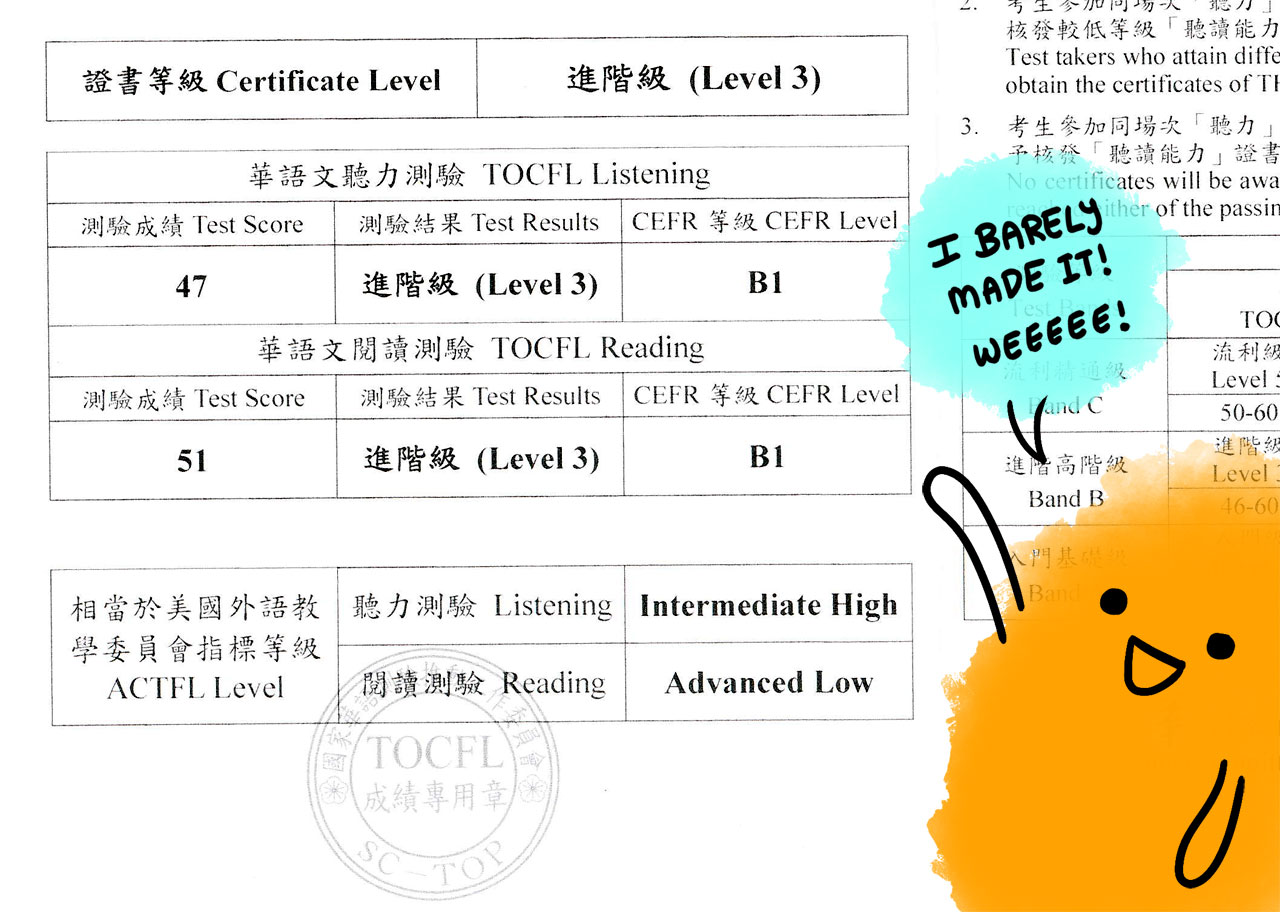
- You too can barely make it!
If you want an official piece of paper that reinforces that your time at the MTC wasn't a complete waste or you're curious to see how you stack up against other students, you should take the TOCFL (Test of Chinese as a Foreign Language). The program at the MTC doesn't give you any sort of official certificate or diploma that say what standardized level of Mandarin you have reached. (What they do provide are certificates of enrollment and transcripts, which you need for extending your visa.) I hadn't originally planned on taking the TOCFL since I didn't need proof of competency, but I ended up taking the test twice for reasons I'll explain below.
When I took the test in 2015, the fee to take the test was between NT$1600 and NT$2000. My first test cost NT$1440, including a school discount. My second test was NT$2000—no discount was offered. I only did the listening and reading test, not the speaking or writing test.
Check the schedule on TOCFL's website and make note of the registration dates. You should register as soon as possible to get the best spot. I took my tests at the University of Education, which isn't that far from Shida. Seats at Shida fill up quickly—I'd assume they're the first to go when it comes to picking a test spot in Taipei. If you wait too long to register, you might have to travel to another city to take the test.
After you finish Book 2, you should have no problem passing Band A, Level 2, as I did after the first time I took the TOCFL. I had only planned on taking the test once, but that changed when I found out that the committee that administers the test had added another official TOCFL session a few weeks later. By that point, I would have been finished with book three. (This extra test was not available in 2016, nor is it available this year; I don't know what happened back in 2015 that led to the extra test.) I decided to try for the next TOCFL level and potentially waste NT$2000 in the process. Thanks to fortuitous guessing (so much guessing), I managed to squeeze out a passing grade at Band B, Level 3. By the time you finish Book 3 you should be able to pass Level 3 without much problem—most of my classmates did—but my Mandarin-learning stamina was so shot by the end of my third term that I'm sure I only passed Level 3 because of dumb luck.
Do you get off from school for Christmas?
Unless Christmas lands on the weekend, nope. It's just any regular ol' day, except with a greater-than-average percentage of students feeling homesick. Knowing this, the MTC tries to bring some Christmas joy into the mix. A few days before Christmas in 2014, they gave out cookies and held some sort of contest involving posting a photo to Facebook with one of the MTC's holiday-themed backgrounds.
There was also someone wearing an alternate-dimension Sulley costume to spread Christmas joy or something.
My class celebrated Christmas by sharing gifts Secret Santa-style and bringing in snacks for everyone to share. (I brought my favorite pineapple cakes, of course.) If you and your classmates are particularly close, your class might do this too.
What holidays DO you get off?
The Chinese and Taiwanese ones! :D Besides the biggest holiday, Chinese New Year, you also get days off for Mid-Autumn Festival (中秋節), Double Ten Day (Taiwan's National Day, 國慶日), and Tomb Sweeping Day (清明節). View the full academic calendar at the MTC's website.
Due to the way certain holidays fall, you may end up with a few days of classes stuck between two periods of vacation days. If this happens, your teacher may suggest a way to redistribute those in-between days to other days so you can have an uninterrupted vacation. If your teacher doesn't suggest it, then you should suggest it. (It's not like your teacher would say no to a longer vacation.) If it works for everyone's schedules and there's classroom space, then you should be good to go. My Term 2 and Term 3 classes did this. I think the work-around was having a few four-hour classes and six-hour classes (with a lunch break in between) instead of the regular three-hour classes.
That's the end of this FAQ! Head to part two for more info. If anyone has more questions, please ask in the comment section below!
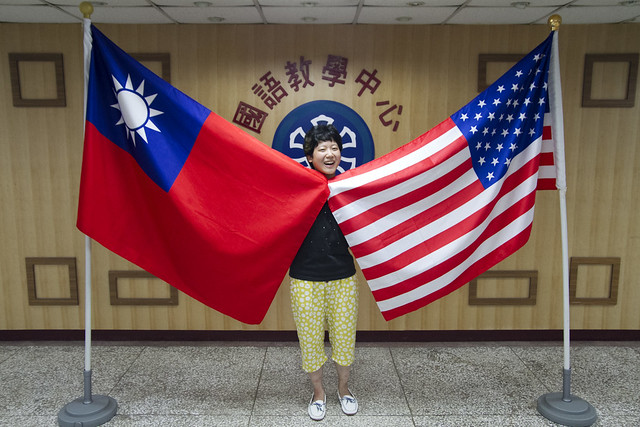
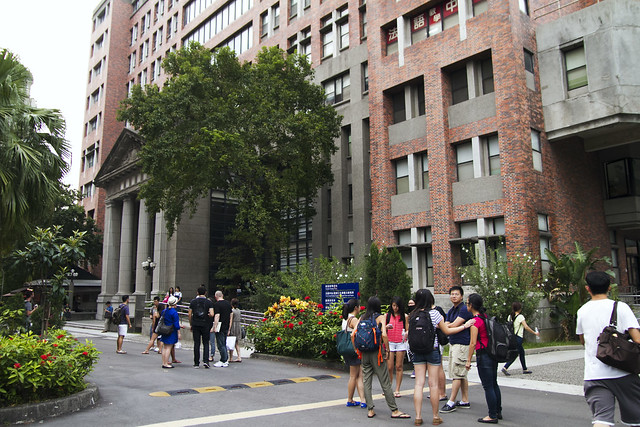
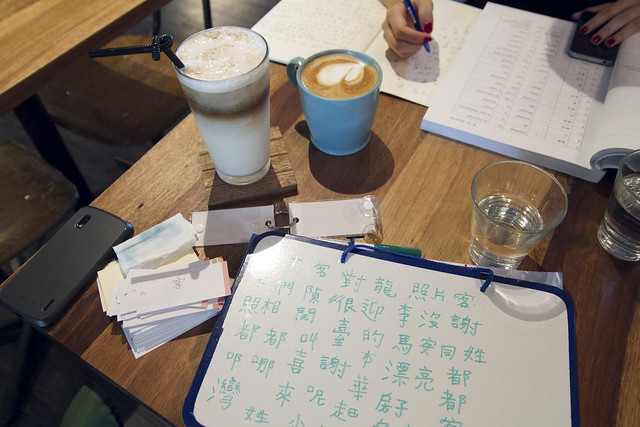
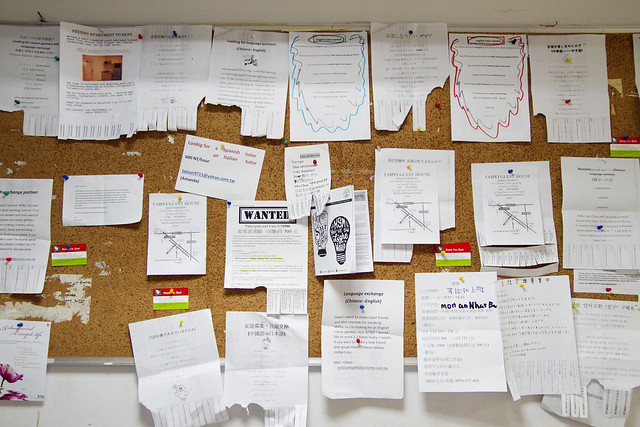
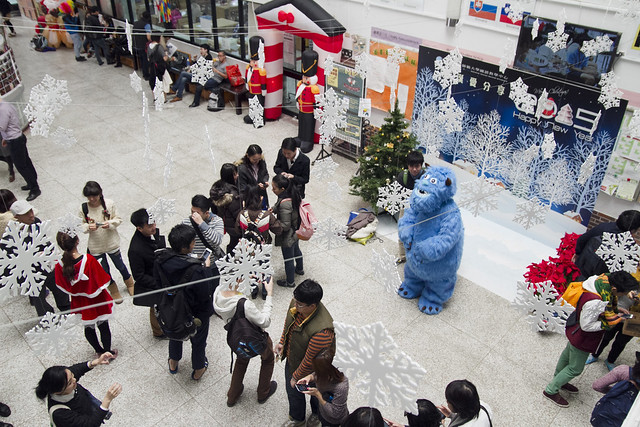

Comments